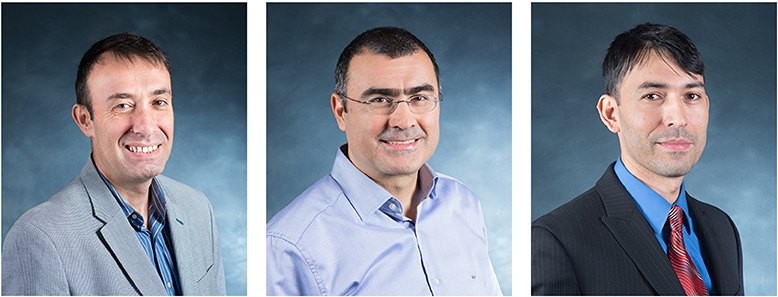Three Boston College economists and a colleague from MIT have devised a matching mechanism to improve the rationing of ventilators and other critical medical equipment during the COVID-19 pandemic, giving authorities an instrument to fine-tune how they meet the needs of different patient groups.
The market design approach, which the economists call a “reserve system,” can better allocate equipment by creating multiple categories of need based on the priorities set by medical and governmental authorities, according to a draft of the report, completed this week by Boston College economists Tayfun Sönmez, Utku Ünver, and Bumin Yenmez, and MIT economist Parag Pathak.
Watching the crisis unfold, the team—recognized in the past for their work helping to match kidney donors with recipients and improving school assignment processes—sought a way to lend their expertise.
“Medical authorities, doctors, and ethicists have made very difficult decisions about treatment protocols to help save the lives of as many patients as possible,” said Sönmez. “We wanted to use our expertise to help doctors, nurses, hospitals and policymakers working on the front lines to respond to the COVID-19 pandemic.”

Boston College economists Utku Ünver, Tayfun Sönmez, and Bumin Yenmez.
With more American hospitals bracing for an onslaught of critically ill Covid-19 patients, there are an estimated 72,000-82,000 full-featured ventilators and 100,000 partial-featured ventilators in the U.S. Yet as many as 21 million Americans may require hospitalization, according to the Centers for Disease Control.
As manufacturers try to put more ventilators into service to meet the projected demand, medical authorities must make life-and-death decisions to allocate the existing supply.
Medical ethicists have made critical recommendations regarding medical rationing, according to the co-authors. These recommendations reflect compromises between several ethical principles, for example: maximizing lives, life-cycle considerations, protecting the sickest, and nondiscrimination.
When critical shortages mount, medical resources are rationed according to triage protocols. Existing triage protocols are based on a “priority point system,” which generates the same priority ranking to ration all the units.
“The priority point system, which aggregates all ethical dimensions into a single score, has become the norm,” the researchers write. “We believe that a reserve system offers additional flexibility and can simultaneously balance competing objectives in ways that a priority point system cannot.”
A reserve system provides additional flexibility over a priority point system because it does not dictate a single priority order for the allocation of all units, the co-authors write. Allocation can swing across different patient groups—segmented according to a range of principles, such as maintaining the health of essential medical employees, or focusing on patients in certain age ranges, or treating patients based on likely health outcomes. If reserved units for one category remain after allocating them to their beneficiaries, the rest can be allocated to patients in a different category so no unit goes unused.
The model relies on a set of “matching rules” that sequentially process reserve categories in a predetermined order to maximize benefits across all groups, the co-authors write.
However, the co-authors note, this flexibility requires careful attention to implementation, most notably the processing order of reserve categories, given that transparency is essential for triage protocol design.
“ Medical authorities, doctors, and ethicists have made very difficult decisions about treatment protocols to help save the lives of as many patients as possible. We wanted to use our expertise to help doctors, nurses, hospitals and policymakers working on the front lines to respond to the COVID-19 pandemic.” ”
Sönmez said the economists constructed the model so it could be implemented quickly—over a period of days or weeks.
“We design mechanisms to solve any social problem of importance,” said Sönmez. “Our job is finding ways to implement allocation. Once a society decides what principles they want to employ in an allocation—in this case, ventilators in hospitals—we can use our tools to develop a mechanism that can solve the problems of allocation.”
The researchers' paper "Triage Protocol Design for Ventilator Rationing in a Pandemic: A Proposal to Integrate Multiple Ethical Values through Reserves” is available for download here.
Ed Hayward | University Communications | April 2020




